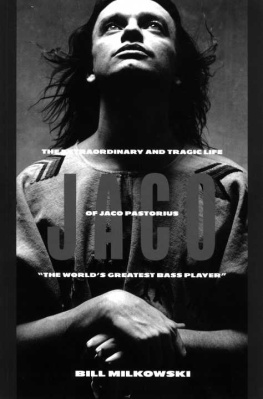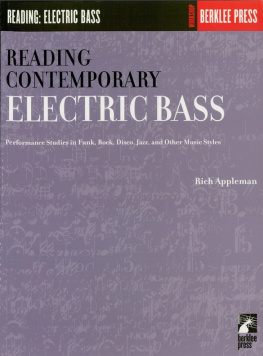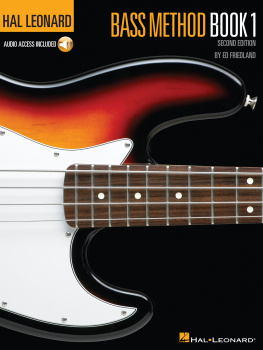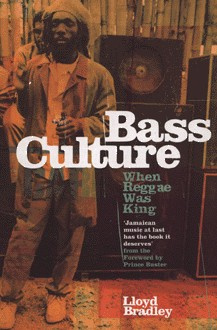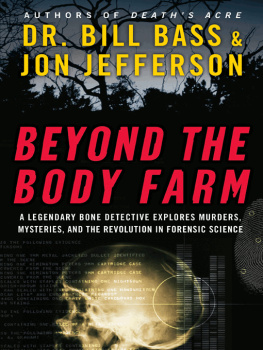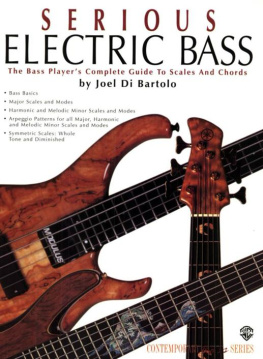jaco
The Extraordinary
and Tragic Life
of Jaco Pastorius
"The World's Greatest Bass Player"
BY BILL MILKOWSKI



CONTENTS
v
vii
Dedicated to my daughter Sophia Vincenza Milkowski (born April 1, 1995)
ACKNOWLEDGMENTS
Everybody in the music business and on the scene has a Jaco story. I tried to collect as many of them as I could during the years of my work on this book while adding in a few of my own. I am grateful for the cooperation of the Jaco Pastorius estate and would like to extend a special thanks to Jaco's parents, Stephanie and Jack; Pastorius, as well as his two younger brothers, Gregory and Rory Pastorius, and his oldest son, John Pastorius.
Thanks to Jim Roberts of Bass Player magazine for a keen eye in editing this book. Other people whose input was invaluable on this project: Bob Bobbing, Charlie Brent, Peter Erskine, Delmar Brown, Kenwood Dennard, Alex Foster, Don Alias, Michael Brecker, Joe Zawinul, Mark Egan, Ricky Schultz, Ricky Sebastian, Peter Yianilos, Mike and Leni Stern, John Scofield, Miles Evans, Hiram Bullock, Billy Burke, Allyn Robinson, Bobby Economou, Bobby Colomby, Ira Sullivan, Paul Bley, James Cannings, Melton Mustafa, Scott Kirkpatrick, Geri Palladino, Kevin Kaufman, Bob Mintzer, Othello Molineaux, Bob Moses, Jeff Andrews, Charles Norkus, Randy Bernsen, Brian Melvin, Neil Weiss, Dave Bargeron, and Gil Goldstein.
I would also like to acknowledge the help and encouragement along the way of Matt Resnicoff, Jean-Jacques Magalas, Christine Martin, Lee Mergner, Donna Russo, Michael Bloom, Laszlo Gardony, Big Ed Maguire, Jedi, Lenny Charles, David Dunton, Will Lee, Marcus Miller, Victor Bailey, Jeff Berlin, Joe Ferry, Mike Kermisch and Mark Tessier, Tom Moon, Neil Tesser, Matt Pierson, Marvin Williams, Garland Hogan, Keiko Yuasa, Koichi Sakaue, Koichiro Kuno, Albert Elegino, Yuko Denbo, Izumi Sato, Aldo Mauro, Mark Levine, Ebet Roberts, and Don Hunstein.
And a special thanks to Angela "The Mommy" Bartolone for her stubborn persistence and helpful feedback throughout this project.
"He who is a legend in his own time is ruled by that legend. It may begin in absolute innocence but to cover up flaws and maintain the myth of Divine Power, one has to employ desperate measures."
-Arthur Rimbaud
"The more famous you are, the more fearful you get of falling off the pedestal, letting people down."
-Marilyn Monroe
Foreword
THINK OF JACO A LOT TODAY, especially in my teaching of music. I come across students who play well and have good taste, who have good time and know the language-but somehow it's not flying.
I have a body of study devoted to students who fall into that category, and I have a name for this syndrome: I call it "id lock." A lot of the problem is that the emotional center, the id, is locked for these people. They know music but they're not screaming it from their heart, as Jaco did. He did not suffer from id lock at all. His id was wide open. He was fearless. And fear is really the biggest enemy of creativity.
I'll tell you a story about this cat. I used to live in upstate New York, and my house was in a valley between two mountain ranges. The woods dropped down to a stream that was fed by two waterfalls that came off the mountains. The approach to the stream sloped down about 15 feet to the water, and it was rocky all the way down. You could slip and trip on the rocks, so people would walk down there slowly and even use their hands to make sure they didn't fall. The stream itself was icy cold. In the springtime, after the snow melted, it could be up to your chest at the deepest part, but in other places it was only a foot or two deep, so you couldn't really swim in it.
I took Jaco to this place. And when he got to the spot where he spied the stream, he just went nuts. "Oh, man! A mountain stream! I love this, man! This is the greatest!"
He was standing at the edge, which was about 15 feet from the stream but not directly above it, because the ridge sloped away from the water. In one motion, he just ripped off all of his clothes and jumped off the ledge. He didn't know how deep the water was. The water was maybe three feet deep, Jaco was about 15 feet upand it was all rocks on the bottom. He was already in the air as I was yelling, "taco! Nooooooooooo!" And he was halfway down by the time I got "no" out.
It flashed in my mind that in a split second I was going to see him die in front of me. And I felt all this sadness. But he made a miraculous move-as soon as his body hit the water, he kind of glided. He somehow managed to turn all of that downward energy into forward energy. And Jaco was big. But somehow he straightened out, and he came up laughing, screaming hysterically. I'd never seen anything like that. Nobody got into the stream that way; everybody would put in one toe and gradually sit down, trying not to trip on the rocks. But this guy was like Tarzan or Indiana Jones. It was like a movie stunt. I saw it, and I still don't believe it.
Jaco was just fearless. His id was wide open, and he experienced life on that level on a daily basis. To me, he was just the highest cat to be around.
-Bob Moses
PREFACE
Jaco: Man and Myth
"My name is John Francis Pastorius III and I'm the greatest electric bass player in the world."
THE LIFE AND MUSIC of Jaco Pastorius are legendary. A potent force in modern American music, he has been hailed as a genius and dismissed as a madman. Of course, there is a fine line between artistry and autism, as the eminent Swiss psychologist Carl Gustav Jung once theorized-and in Jaco's case, the tightrope he walked was tenuous at best.
Like his heroes Charlie Parker, Jimi Hendrix, and Jesus Christ, Jaco didn't make it to 40. Yet, in the relatively short time he spent on the planet, he totally revolutionized his instrument and left behind an incredibly rich body of work that will stand the test of time. In jazz schools and music conservatories all over the world, his name is spoken by students in the same reverential tones reserved for such gods as Bird and Mozart. As one aspiring bassist put it, "Jaco opened the door and we walked through."
In New York, they still talk about his legendary gigs, his marathon hangs, his outrageous antics onstage and off. Stop in some night at the Village Vanguard, the Blue Note, Sweet Basil, the Lone Star-all showcase clubs where Jaco headlined in his heyday. Or drop in at any of the marginal joints he played during his dark years. Talk to the clubowner, the doorman, a bartender, or any of the regulars on the scene. Talk to musicians or their managers or the employees in record stores around town. Talk to jazz critics from the daily papers or correspondents from Down Beat, Musician, or Billboard. Talk to the homeless cats panhandling outside the clubs or hanging on the West Fourth Street basketball courts. Everybody, it seems, has a tale to tell. It's all become part of the ever-growing body of folklore that fuels the Jaco myth and goes hand-in-hand with his musical legacy.
Jaco was to the electric bass what Paul Bunyan was to the lumber industry, what Muhammed Ali was to boxing. Like Babe Ruth and Jimi Hendrix, like Charlie Parker and John Belushi, he was a largerthan-life figure who lived to excess and was worshipped by multitudes. Throughout the international music community, those two syllables-Jaco-still resound with authority, a testament to his musical genius and the power of his charisma.

